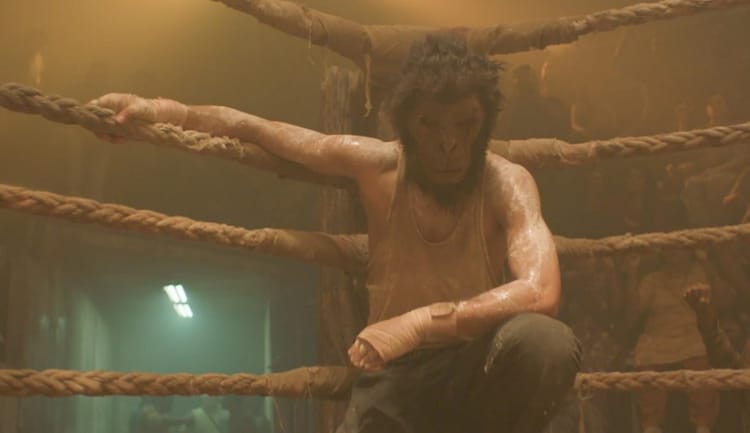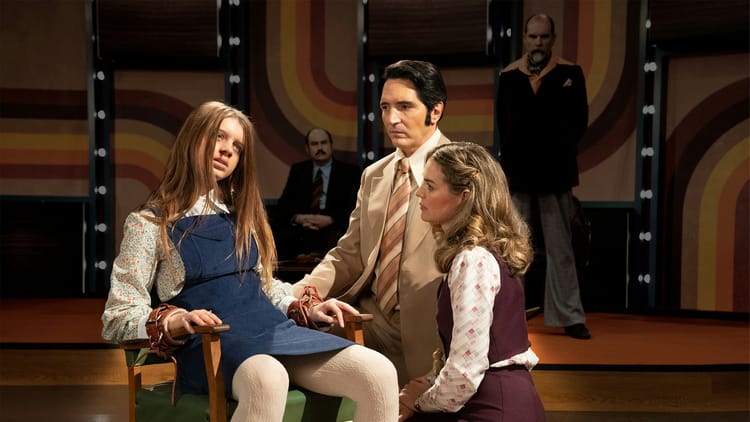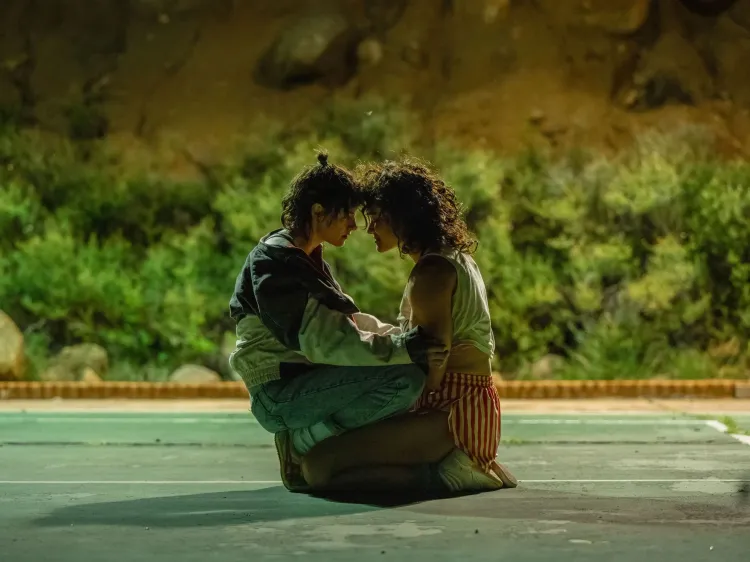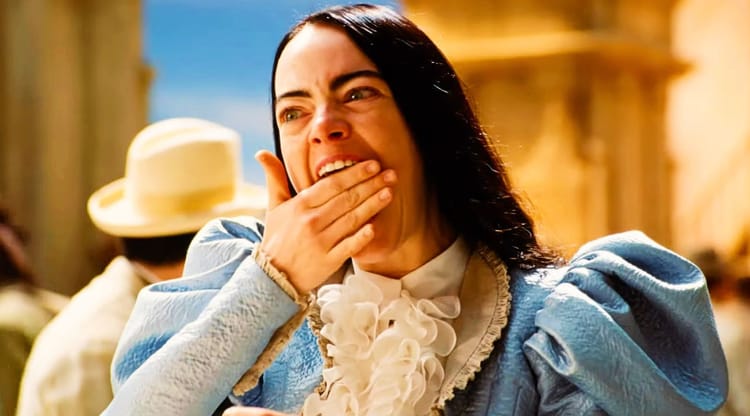Do Not Expect Too Much from the End of the World
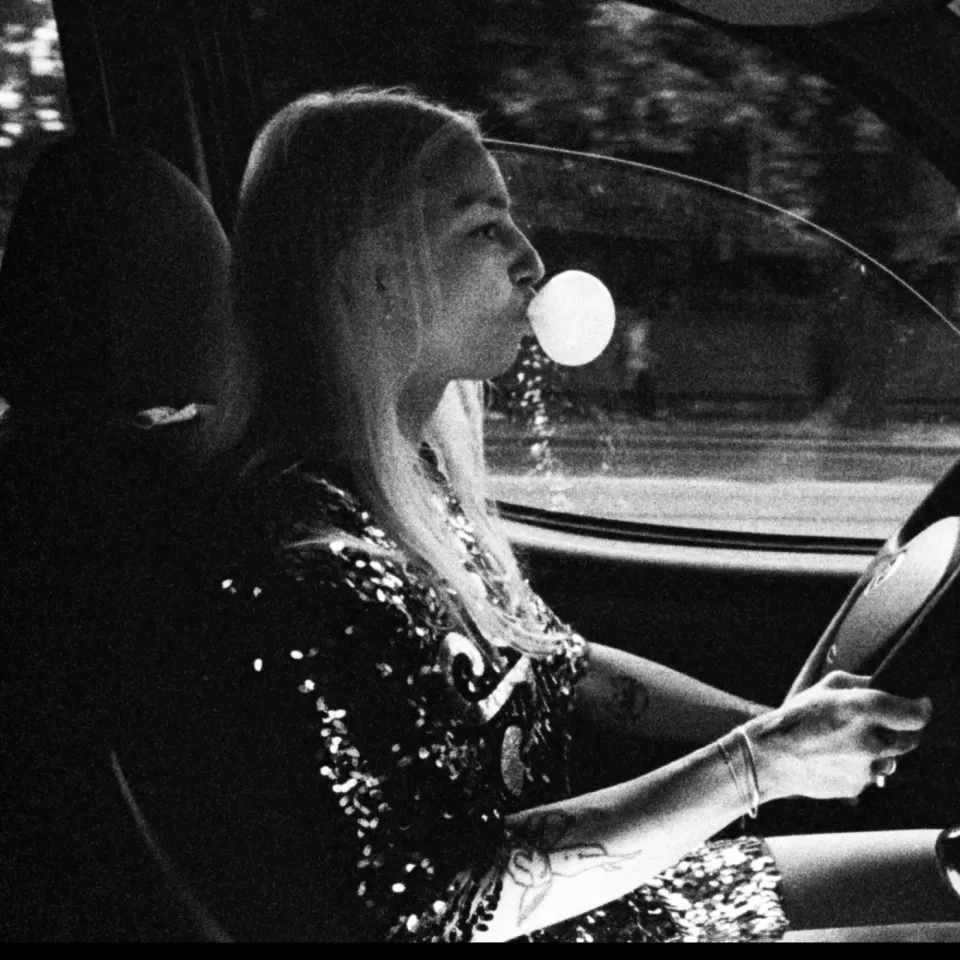
Angela is an exhausted PA, overworked and underpaid, left with no choice but to keep driving, keep filming, keep moving lest she fall asleep at the wheel. In between her stints of interviews, pre-production meetings, and courier services, she lets out her stress and frustration through her TikTok character, Bobita, a unibrowed, off-color offprint of Andrew Tate raging against feminism and the state of Romania.
Angela is ostensibly the protagonist of Radu Jude's evocatively titled film, "Do Not Expect Too Much From The End Of The World." She's a fleshed out, complicated, likable, unlikable, vulgar, extremely funny person who we come to view in her fullness. But she's also a vehicle. Angela drives us through Bucharest, yes, but more importantly, she drives us through this moment, of what it means to be alive today in a present controlled by corruption, backroom deals, PR ops, and laws that always sides with corporations. She is our protagonist but she is also our guide.
Angela is also not the film's only Angela. Because interspersed throughout the first of the film's two parts is footage from the 1982 Romanian film, "Angela Moves On." 1982 Angela appears in spurts throughout our Angela's odyssey. Our Angela interviews maimed factory workers, assessing their suitability for a helmet-centric safety campaign. 1982 Angela roams through Bucharest, picking up an obnoxious chef, aiding a crying mother, and meeting her husband. While the present is dark and bleary, 1982 glows with technicolor nostalgia. It's just one of Jude's many, many incredibly bold choices in this film that, if all laid out on paper, would sound scattered and unfocused. Instead, the film is sharpened to a razor's edge, astonishing despite its hefty 163 minute runtime.
Any attempt by me to unpack Jude's off-kilter directorial decisions will fail to compare to the sheer weight of those moments in the cinema. I will only say this: we often think the cinema is better because it is capable of more sound, mastered to perfection. So for a small feature like this, our television's sound systems may suffice. But our living rooms are never as quiet as a silent cinema.
Jude understands our present moment is bleak. That doesn't mean it isn't funny. There are several hilarious moments throughout this film, all funny because of how honest they are. There is a misery in the film's comedy as like Angela, when faced with the end of the world, the most natural thing to do is laugh. Because to face its cruelty without humor only leads to despair. So instead, we turn on our TikTok filters, we sleep through our meetings, we scream at each other throughout our car windows, we laugh, and we keep on driving.
